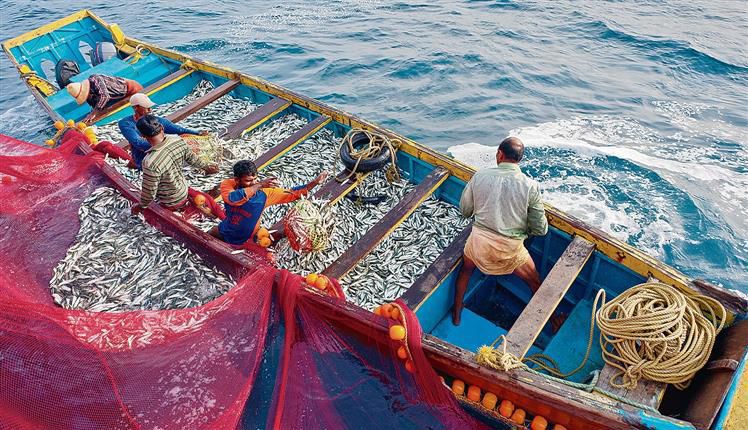
India not in a hurry to ratify first agreement on fisheries; SJM welcomes stand at WTO
SJM welcomed the statement of the official delegation of government of India at WTO’s 13th Ministerial Conference (MC13) in Abu Dhabi that India is in no hurry to ratify the first agreement on fisheries. It is understood that there is a dire need to discipline the corporates of developed countries fishing in distant waters, and exploiting the ocean resources, causing depletion of fish and other ocean resources, SJM said. SJM noted that any agreement, which is silent on the real culprits of depleting ocean resources is not acceptable.
“We also appreciate and welcome the stand of India’s delegation that India doesn’t support bringing in gender and micro, small and medium enterprises in the WTO discussion and as the same may further complicate the WTO functioning. We further support the statement that these issues are better addressed at other international forums,” SJM said.
Today was the second day of WTO MC 13, at Abu Dhabi UAE. Members were engaged in intense discussions on fisheries subsidies and agriculture. As per the official briefing by the WTO Secretariat, the issue of support for public stockholding for food security continued to remain the bone of contention.
The Cairns Group of countries (net exporters of food grains) were seen as blocking the permanent solution which was agreed upon in 2013, 2014 and 2015. In the ninth 9MC at BALI in December, 2013, a decision on public stockholding for food security purposes was taken. Members agree to put in place an interim mechanism and to negotiate on an agreement for a permanent solution applicable to all developing countries. It was also decided in 2014 that until a permanent solution is found, Members shall refrain from challenging through the WTO Dispute Settlement Mechanism. This is known as ‘Peace Clause’.
“Since, it is the right of India and other developing countries to get permanent solution for public stockholding under this agreement, the efforts to block the same is highly deplorable,” SJM said.
If said the official delegation of India needed to intensify its efforts to get the reference period changed from 1986-88, which is highly objectionable, to the latest one, till the time permanent solution is achieved along with changing ‘eligible production’ to ‘actual procurement’. In addition, SJM urged the government to make its best efforts for getting the permanent solution by bringing public stockholding for food security into Green Box, which is a category of subsidies which are not subject to any restrictions under the WTO agreement on agriculture.
SJM in a statement called upon the people and governments of all the countries to understand the rights of global poor for food security; first condition of which is ability to have sufficient public stock holdings to save people from hunger and malnutrition. We further wish to emphasise that there is no reason for WTO to object to measures taken by the sovereign governments to safeguard the interests of their respective populations. If the developed world continues to block permanent solution to public stock holdings issue, there is no relevance of WTO and we may be forced to give a call for exclusion of agriculture from WTO, as was the case with its predecessor, that is General Agreement on Trade and Tariffs.
The fisheries agreement regulates the provision of fisheries subsidies and recognises that certain types of subsidies can have a negative impact on the sustainability of marine natural resources.


